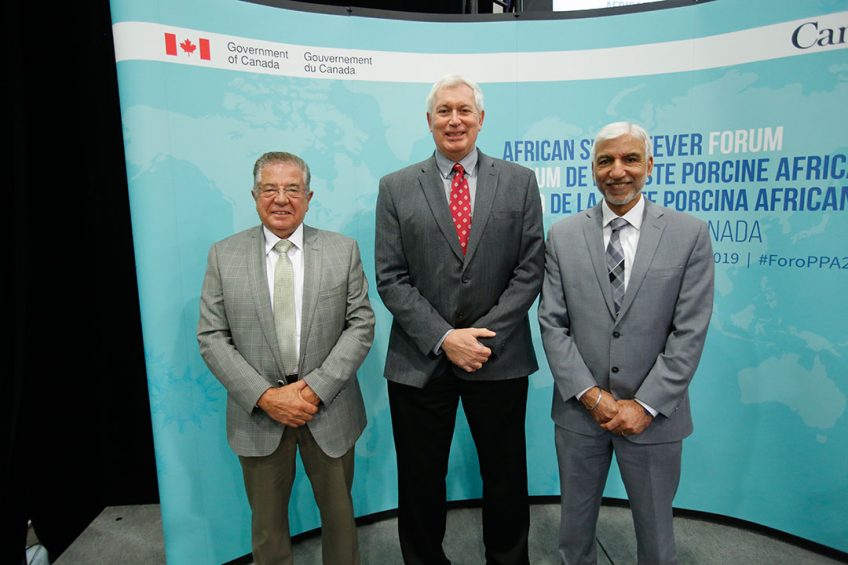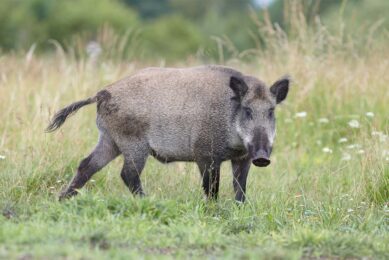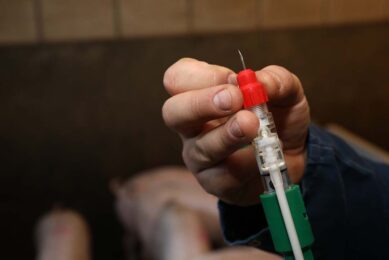Americas co-ordinate the prevention of ASF

Continent-wide prevention plans are being honed through a newly-formed ‘Americas’ ASF working group, and some trade continuity plans are being put in place in case a breach occurs.
Aspects of the management and entry prevention of African Swine Fever (ASF) are being tightened around the world, including new plans for more uniform entry prevention (and control if detection should occur) for the Americas.
Entry prevention actions already taken in ASF-free countries are focussing on preventing meat from being brought in by way of individual airline travellers. For example, in Canada, awareness signs have been posted at airports and social media campaigns have been launched. Officials have applied fines when and where illicit meat has been seized, and the federal government has committed to an expansion of airport ‘sniffer dog’ detection teams.
Discussing ASF at mettings across the globe
Recently, ASF was discussed at the G20 agriculture ministers meeting in Japan. In addition, more than 150 officials met in Ottawa for a global ASF forum, co-chaired by Canada and the USA.
Delegates attended from China, Mexico, UK, France, Australia, Denmark, New Zealand, Barbados, Dominican Republic, Bolivia, Czech Republic, Japan and Brazil. The United Nations Food and Agriculture Organization (FAO) and the World Animal Health Organization (OIE) also sent representatives.
ASF plan with 16 focus areas
Attendees agreed to a plan with 16 areas of focus. “Jointly, we have developed a framework that will support ongoing international collaboration and action in the areas of preparedness planning, enhanced biosecurity, business continuity and coordinated risk communications,” explained Dr Jaspinder Komal, Canada’s chief veterinary officer (CVO), the OIE delegate for Canada and vice president of the science branch at the Canadian Food Inspection Agency (CFIA).
Details on the 16 specific action areas can be found here.
In addition, if ASF is found in Canada, spread of the disease will be prevented through new criteria added to export certificates for live animals, germplasm, animal products and by-products between Canada and the USA and Canada and Europe. This criteria will allow safe trade to continue from disease-free zones.

Read more on pig health at the Pig Progress Health Tool
Approved disease-free zones
If the disease is found in Canada or the USA, Komal (in collaboration with the US CVO, Dr Jack Shere) officially stated on May 22 that safe trade will continue in approved disease-free zones, zones that will be created using parameters first arranged in August 2018 and will be defined at the time of an outbreak according to OIE guidelines.
In addition, a new ASF working group for North and South America (‘the Americas’) is currently forming, similar to groups already in place among Asian nations and European nations to address ASF issues. These groups all fall under the the Global Framework for the Progressive Control of Transboundary Animal Diseases (GF-TADs), a joint initiative between FAO and OIE.
Read everything about ASF at the Pig Progress ASF minisite
Sharing strategies and tools to prevent ASF spread
CFIA director of animal import & export Dr Mohit Baxi said that once the initiative gets up and running over the next few months, meetings will be held to share strategies and tools to prevent introduction of ASF in the Americas and develop control plans to prevent further spread of the disease if it appears in countries within these continents.
He said, “All 31 countries in North and South America are included in this working group. We will discuss risk communication strategies, surveillance plans and biosecurity protocols so that the appropriate leaders in all countries can all make the right decisions at the right time, and so that countries without a lot of infrastructure can be empowered as much as possible.”
Dr Baxi said, “ASF is moving worldwide. We need to be on top of prevention and control, and also handle food security issues that may arise.”
 Beheer
Beheer








 WP Admin
WP Admin  Bewerk bericht
Bewerk bericht